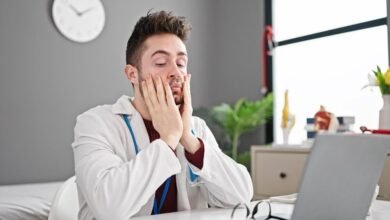Detox Benzodiazepines: A Complete Guide to Safe Withdrawal and Recovery

Benzodiazepines are prescribed for anxiety, insomnia, and seizures, and are effective when used as directed. However, long-term use or misuse can lead to dependence and addiction. For many people, the overwhelming feeling of dependence can be challenging to break. The most effective and safe way to overcome it is through a medically supervised detox benzodiazepines program.
This article will explain what benzodiazepines are, the risks associated with their misuse, the withdrawal process, and the role of medical detox in long-term recovery.
What Are Benzodiazepines?
Benzodiazepines, often called “benzos,” are psychoactive medications used to treat the following:
- Generalized Anxiety Disorder (GAD)
- Panic Attacks
- Seizure Disorders
- Muscle Spasms
- Insomnia
Commonly prescribed benzodiazepines include:
- Xanax (Alprazolam)
- Valium (Diazepam)
- Ativan (Lorazepam)
- Klonopin (Clonazepam)
Benzodiazepines are effective in the short term because they enhance the calming effects of gamma-aminobutyric acid (GABA), a neurotransmitter in the brain. Long-term use leads to dependency and addiction.
Why Can Benzodiazepines Be Addictive?
Benzodiazepines can be addictive solely due to how they alter brain chemistry. Eventually, the brain relies on the drug to control stress and anxiety. When someone attempts to lower the dose or discontinue taking the drug, they may experience withdrawal symptoms. Withdrawal symptoms can be severe, which causes many to quit taking the medication without help.
Some factors that lead to benzodiazepine addiction are:
- Tolerance: needing to take higher doses to achieve the desired effect.
- Dependence: the body adjusting to benzodiazepine and not being able to function without it.
- Psychological Cravings: many people depend on the drug to cope with everyday stress.
Risks of Ongoing Use of Benzodiazepines
When benzodiazepines are used over a long period, they can also cause harm to the body. Some risks are:
- Memory loss and problems with thinking
- Depression or anxiety that is worse than before
- Older adults are at a greater risk of falling or getting injured
- Accidental overdose, especially when benzodiazepines are used with alcohol or opioids
- Quitting is more dangerous due to long-term dependency
Because of these dangers, many doctors recommend tapering the medication instead of stopping it all at once.
Importance of Benzodiazepine Detox
When it comes to certain substances, withdrawal symptoms range from mild to life-threatening. With benzodiazepines, withdrawal symptoms can lead to death. This makes withdrawal benzodiazepine detox programs important.
Medically supervised detox offers:
- Safety Monitoring: You will be monitored to ensure that you are safe during the withdrawal phase.
- Medication: Withdrawal symptoms can be painful, but medication can help.
- Risk Reduction: We will gradually taper the benzodiazepine to avoid severe complications.
- Emotional Support: There will be trained professionals to support you during the painful withdrawal phase.
- Medical Assistance: Detoxing benzodiazepines at home is not recommended.
Benzodiazepine Withdrawal Symptoms
The withdrawal symptoms benzodiazepines are the following:
- Anxiety and panic attacks
- Insomnia and restlessness
- Muscle pain, stiffness, or cramps
- Tremors or sweating
- Irritability, mood swings
- Nausea
- Heart palpitations
- Seizures (in severe cases)
These symptoms can last from a few days to many weeks, and are dependent on the severity of dependence.
Stages of Benzodiazepine Detox
The detox phases are typically broken down into three main stages:
- Early Withdrawal
Symptoms like anxiety, insomnia, and irritability begin within a few days of the last dose. - Acute Withdrawal
The symptoms experienced in this step peak in the second week. Panic attacks, nausea, shaking, and other balance issues are most extreme during this time. In the most severe situations, there may be seizures. - Protracted Withdrawal (Post-Acute Withdrawal Syndrome – PAWS)
For other people, these symptoms are prolonged for additional months. PAWS includes depression, anxiety, and other cognitive problems.
During this time, from a psychological perspective, the support and treatment focus are imperative.
Medical Detox for Benzodiazepines
A professional detox program incorporates the most up-to-date methods for ensuring the patients’ detox and withdrawal from the drug are safe and as comfortable as possible. The most pivotal steps in this approach are the most relevant to this question:
- Assessment and Evaluation: The healthcare professionals will evaluate the use of the drug, the history of use, and the other comorbid conditions alongside benzodiazepines to determine appropriate care.
- Tapering Schedules: Instead of stopping the benzodiazepines abruptly, they will reduce the dose mildly until it is safe to stop.
- Medications: Withdrawal symptoms will be observed and mildly controlled with pharmacological methods.
- Therapeutic Support: Patients will be facilitated and supported regarding psychological withdrawal and cravings.
- Aftercare Planning: In most cases, the patient will be advised to continue with other structured treatment programs, rehab, therapy, etc.
Why is Professional Detox Safer Than Quitting Cold Turkey?
Attempting to detox benzodiazepines without professional help is unsafe for the patient. This is due to the following risks:
- Severe anxiety and panic psychological symptoms will most likely lead to a relapse.
- Medical complications, including seizures, irregular heartbeats, and increased hypertension.
- Overwhelming cravings and psychological relapse will most likely occur without support.
Rehabilitation staff are fully trained and equipped to help clients get through withdrawals and kick-start their rehab successfully.
The Importance of Therapy During Rehabilitation
Rehabilitation is only the beginning of the process and the first step is detoxing. Therapy is integral to rehab because it addresses the reasons the client was compelled to misuse the drug. Popular therapy methods are:
- Cognitive Behavioral Therapy (CBT): Helps patients change the major thinking patterns and formulate useful coping strategies.
- Dialectical Behavioral Therapy (DBT): Equips patients with skills to practice emotional regulation and mindfulness.
- Trauma-Informed Care: Healing the emotional wounds that may lead to abuse of drugs.
- Group Therapy & Peer Support: Combating the sense of isolation and supplying the needed motivation.
Developing a Recovery Plan
Rehabilitation is only the beginning of the process. For sustained sobriety and mental wellness, lifestyle changes need to be made. Integrated rehab involves:
- Continued therapy and counseling
- Restorative yoga, meditation, and exercise
- Balanced meals and a clean sleep routine
- Support groups (ex: NA, SMART Recovery)
- Developing a relapse prevention plan
The clients can rebuild their lives with the help of the professionals and prescribed methods.
Support for Families
Benzodiazepine addiction leaves its mark not just on the individual but the family as well. Having a family member with addiction issues can be frustrating and helpless. These frustrating experiences can be mitigated with appropriate family engagements like family therapy.
Conclusion!!
Benzodiazepine addiction is a serious condition that needs professional help. Unlike unsupervised withdrawal where complications can arise, a medically supervised detox program paves the way to a safer and more comfortable withdrawal period and lays a strong foundation for future recovery.
For someone you love, the ideal first step is engaging in a detox program. This step, paired with therapy and a comprehensive recovery plan, can provide the much-needed help to overcome dependence on benzodiazepines.



